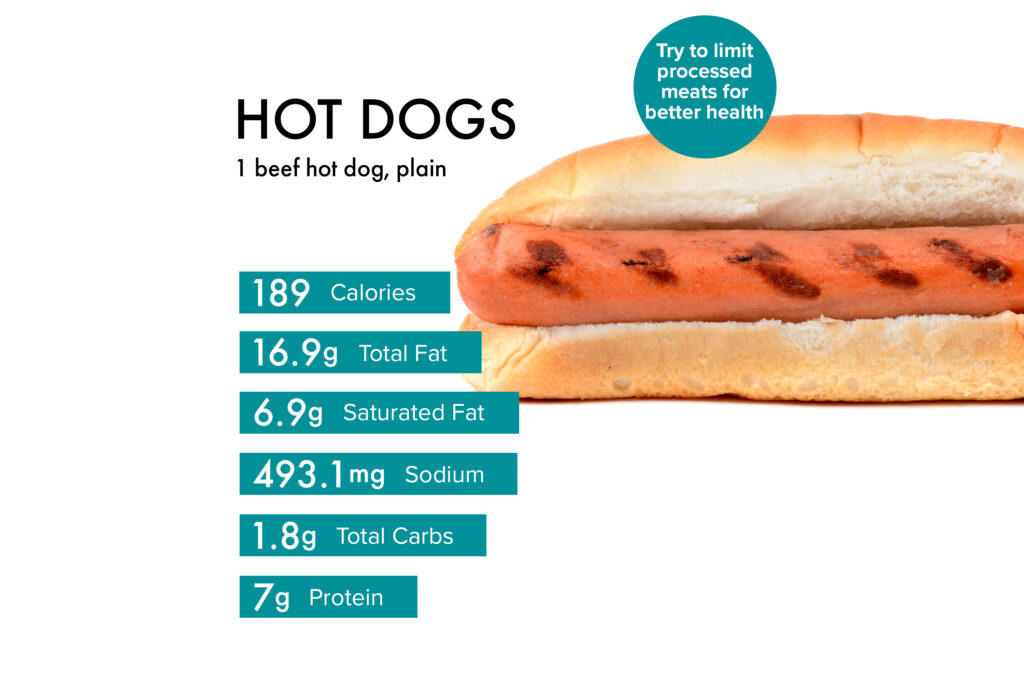Hot dogs are a beloved American classic, enjoyed at barbecues, sporting events, and casual gatherings. But have you ever stopped to consider the actual weight of your favorite ballpark treat? The weight of hot dog can vary significantly depending on the brand, size, and even the region where it’s purchased. Understanding these variations is crucial for making informed choices about portion control and calorie intake.
This article delves into the average weight of hot dog, exploring the factors that influence its size and the implications for your health and dietary goals. We’ll examine the typical range, discuss common size variations, and analyze how hot dog weight directly affects calorie count and portion size.
Average Hot Dog Weight
The average weight of hot dog typically falls between 40 to 60 grams. This means that a standard hot dog can weigh anywhere from roughly 1.4 ounces to 2.1 ounces. Keep in mind that this is just an average, and individual hot dogs may be heavier or lighter depending on the factors mentioned earlier.
When purchasing hot dogs, it’s helpful to check the packaging for specific weight information. This will give you a more accurate understanding of how much you’re consuming. Remember, even small variations in weight of hot dog can add up over time, especially if you’re enjoying them regularly.
Hot Dog Size Variations

While the average weight of hot dog provides a general guideline, there are noticeable size variations across different brands and types. Some popular varieties include:
- Jumbo Hot Dogs: These larger hot dogs often weigh upwards of 70 grams or even more, making them a substantial snack. They’re commonly found at sporting events and fairs.
- Mini Hot Dogs: As the name suggests, these smaller hot dogs are typically under 40 grams, offering a lighter option for those watching their calorie intake.
These variations highlight the importance of paying attention to the specific size of the hot dog you’re consuming, as it directly impacts both calories and portion control.
Calorie Count in Hot Dogs
The weight of hot dog plays a significant role in determining its calorie count. A typical 40-gram hot dog contains around 150 calories, while a larger 60-gram hot dog can have upwards of 200 calories.
It’s important to note that these calorie counts are estimates and can vary depending on the ingredients and preparation method. For example, all-beef hot dogs tend to be higher in calories than those made with chicken or turkey. Additionally, toppings like cheese, chili, and bacon can significantly increase the overall calorie count.
Impact of Weight on Portion Size

Understanding the weight of hot dog is crucial for managing portion sizes. A standard serving size for a hot dog is typically considered to be one 40-60 gram frankfurter.
However, it’s easy to overindulge when enjoying these tasty treats. Be mindful of your intake and avoid exceeding recommended serving sizes. Consider opting for smaller hot dogs or sharing with friends and family to help control portions.
Brand Differences in Hot Dog Size
Different brands may have varying standards for hot dog weight. Some brands are known for producing larger, meatier hot dogs, while others focus on smaller, lighter options.
When comparing brands, it’s helpful to check the packaging for specific weight information and consider your personal preferences. If you’re looking for a more substantial hot dog, opt for a brand known for its larger size. Conversely, if you prefer a lighter option, choose a brand that offers smaller hot dogs.
Conclusion
The weight of hot dog is an often overlooked factor that can significantly impact both calorie intake and portion control. By understanding the average weight range, common size variations, and the influence of weight on calorie count, you can make more informed choices about your hot dog consumption. Remember to pay attention to serving sizes, compare brands, and choose options that align with your dietary goals. Enjoying hot dogs responsibly allows you to savor this classic treat without compromising your health.



